Levelling Up - How to Improve your Play
Sando
January 28, 2016
Introduction
A big part of the attraction of playing DOTA is that no matter how good you are, you can always get better. There's always a new hero to learn, a style to master and an infinite number of different situations to encounter.
Almost all players are constantly striving to improve their game, whether they're working out little quirks or noticing how situations turned out differently from how they thought. The interesting thing is that as you improve and learn, you start to see the game differently, and your thought processes evolve with your understanding. You can only get a hero to 25 in a single game, but internally, you are always levelling up.
This guide is my take on what you can do to improve faster, better - and how to avoid some of the mistakes that end up bogging people down.
Updated 28/01/16
Learning to Learn
 |
"The greatest enemy of knowledge is not ignorance, it is the illusion of knowledge"
- Stephen Hawking
|
If you want to get better at anything, the best place to start is "learning to learn". This is about helping yourself to acquire new skills quickly and avoid falling in to traps that will slow you down in the long run.
As we all know, practice and experience are essential to getting better at something. However, what many people don't realise is that
you have to practice doing something CORRECTLY in order to get better at it.
Practicing doing something the wrong way will just make you marginally less bad at it - you will never genuinely achieve a high level because your technique is fundamentally flawed, and this limits you ability to improve beyond a certain level.
For example, you sometimes get matchmade will players who have substantially more matches and hours logged on DOTA than you do. The game rates them as being about the same skill level as you. Surely after all that extra practice they should be better? Nope, because they've likely become stuck in their ways, repeatedly practicing playing badly.
So how do we avoid these pitfalls?
- Keep an open mind. Never assume that you have all the answers or have found "the best" way of playing.
- Never assume you have mastered anything. Even the best players are human and make mistakes.
- Evaluate your own performances. You don't need to watch back every game or lose focus examing your mistakes during one, but be objective about what you can do better. Ask others for their opinions too.
- Don't blame other people. There is always something you could have done differently, you are responsible for your own performance.
- Get the right information. Decisions based on wrong or out of date info lead to bad decisions.
- Study up. Even if you're not a big one for stats and numbers, have a quick browse of the items and heroes while waiting for a match. How much damage does max
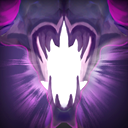 Brain Sap
Brain Sap do? What kind of damage is it? How long can
 Centaur Warrunner
Centaur Warrunner disable me for? Try to have a rough idea in your head.
- Play with and against better players. Competing at a higher standard is harder, but it also shows your mistakes far more clearly and pushes you strongly to improve.
Be Realistic and Set Goals
 |
"A goal is not always meant to be reached, it often serves simply as something to aim at"
- Bruce Lee
|
The chapter title pretty much says it all, but lets be more specific.
Do you want to be a pro DOTA player? You may love playing, but turning a hobby into a job isn't always as much fun as it sounds. Playing 8-12 hours a day, every day? Might get kinda boring. You might start seeing
 Pudge
Pudge in your sleep and have hostility from other players slowly sapping your will to live.
How about being a 6k MMR ranked player? Getting to that kind of rank means you're well into the top 1% of players. To get that good at anything requires a certain level of sacrifice and self-discipline. What are you prepared to give up to reach that goal? Do you have the time to commit? Is it worth it?
Ok, so you still want a high MMR? That's understandable, you want to take part in better games, with better team mates and opponents. Say you want to get to 4k, and you're currently 2k. Trying to make that kind of leap in one go is a huge ask.
Break your overall goal down into managable stages - getting to 2.5k, getting to 3k, etc. That way you develop a positive feedback loop where achieving your smaller goals encourages you to keep striving for your ultimate one.
Personally, I started playing long before official rankings ever turned up, and have never been particularly motivated by the numbers. It's nice to have some measure to compare yourself to, but the main priority for me was always to play with decent players and have enjoyable games.
I've never been systematic about learning new heroes - it's always been a Random "ooo this is fun" or a desire to try something different.
We all have different ways of doing it, so find something that works for you. It should be fun, this will keep you motivated. Try not to become too stuck in your ways, keep striving to learn something new and keep yourself challenged.
Flexibility Vs Specialism
 |
Versus
|

With such a huge hero roster and diversity of roles, you have to make decisions at various points about whether to go wide, or go deep. Do you want to a strong all rounder who understands a large variety of heroes, roles and items...or a specialist who's extremely good at a particular hero or role?
There is no right and wrong answer here.
Being an all rounder offers more variety and general understanding of how the game works. However, to be really good at something, especially high skill-ceiling heroes like  Invoker require that you specialise.
Invoker require that you specialise. Given long enough you can move between the two extremes of randoming every game or always playing the same hero.
I'd encourage you personally to do both. Specialise when you need to (for example, learning a new hero) and diversify at other times. There's no doubt that playing the same hero over and over will generally make you better at it - you'll experience more situations, learn how to use their skills more effectively, and what items and builds work best on them.
However, I'd also definitely say that you can learn to be a better support by playing carry sometimes. This statement might make absolutely no sense to you, so let me explain. Playing as a carry hero you know what you want - farm, a hassle free lane, some kills, wards up, stacked camps etc. You want that gold and xp to flow freely.
Now, see the situation from the other side - play as a support - you can understand your carry's needs much better as you've been in that situation yourself. What were those things that annoyed you as a carry? Well you can avoid them as a support. You can lay out a lovely platter of stuff for them to get stuck in to, because you know what they want. Likewise, switching back to carry afterwards you have a better understanding of the challenges your support faces, and what you can do to help them.
Picking a Role
Ultimately the thing I'd argue here is that you need to specialise somewhat when trying to play "competitively" - i.e. you want to win, either on your own or with friends. This isn't the time to be messing about with no heroes or trying to play roles you're not very familiar with.
Picking a role to specialise in is for me, mostly about fun. What do you actually enjoy playing the most? A lot of teams are a bit like rock bands - there are too many lead guitarists and never enough bassists and drummers to go around. Why? Ego mostly :)
Same in DOTA - there's generally a surplus of carries and mids, the "star" players. This means a lot of their less assertive friends end up getting pushed into support roles which they don't really enjoy.
I think most people have roles that they naturally gravitate towards - aggressive players generally like gankers, defensive players like supports and offlaners, carries suit people who are motivated by scores etc. There's no right and wrong answers, try and find a role or two that suits you best, and that you enjoy.
The Team > You
 |
"To me, teamwork is the beauty of our sport, where you have five acting as one. You become selfless."
- Mike Krzyzewski
|
The biggest single mistake I see in DOTA (and probably also the most common one) is people who don't play for the team. Sometimes these players are good enough to get away with it, or players on both sides are doing it anyway.
It's generally very difficult to quantify exactly what playing for the team is - sometimes a carry legging it away from a fight is a good team move, sometimes it's an awful one. It just depends on the situation. We will all make mistakes sometimes, and it's also human nature to assume that our immediate needs outweigh those of other people.
I've seen people delay pushes against a half dead enemy team because "I'm 400g off blah blah blah" - quite often a non-key item on a non-core hero that is a really low priority compared to potentially taking an enemy rax. Likewise you sometimes see supports sitting on hundreds of gold with no
 Observer Ward
Observer Wards up and no
 Flying Courier
Flying Courier.
The simplest guideline I can give you here is "always try to do what's best for the team" - you will get it wrong sometimes, but at least you'll be striving to do it right.
Don't be selfish, think about the bigger picture - it will make you a better player. Same goes with picks - you may want to try out X hero, if so pick/tell them early so your team can work around you. Don't wait til the end and get something massively inappropriate.
Noob -> Intermediate -> Advanced -> Expert

Everyone rates themselves differently, and at the end of the day these are just labels. They're also relative - you might be "expert" compared to some players, but "noob" compared to others.
So what's the point of these labels anyway? For example, I was recently playing a standard solo pub and someone on the other team said "Are you the REAL Sando?". I was like "erm, what?". It turned out he was a DOTAfire reader and knew of me from here. So all very nice, I played the game pretty solidly but the team failed badly and we lost.
From his point of view - I'm an "expert" because I write a lot of guides. This may or may not translate into more game skill, or knowledge. We may be about the same MMR, or the teams may have been stacked in such a way that we ended up in the same game despite a disparity.
What I can tell you for certain is that different levels of player develop certain thinking habits that help them to be ahead of the opposition:
- A new player generally doesn't know that he doesn't know, they make obvious mistakes and miscalculations because they have very little experience and knowledge.
"This guy's on low health, quick, charge after him! What's that weird bell noise? Oh well, keep hitting him! He must be nearly dead! What the!? His health's going UP!? Where did all these other heroes come from? Arrggh"
- An intermediate player knows most of the basics, but tend to become unstuck in unfamiliar situations, rely on prescribed builds or generally lack game awareness. They flee fights they could win, or misread other situations.
"I may be a trilane support, but the guide said that I should always level 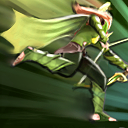 Windrun first and buy a
Windrun first and buy a  Null Talisman. What do you mean we lost because we had no
Null Talisman. What do you mean we lost because we had no  Animal Courier and missed an easy first blood?"
Animal Courier and missed an easy first blood?"
- An advanced player has built up a good understanding of game mechanics, roles, heroes, and how the game generally plays out. Their understanding allows them to adapt more on the fly, and they alter their playstyle to the situations at hand.
"Ah ****, the heroes I was expecting to lane against are somewhere else. I'm going to buy some extra consumables and a  Stout Shield so this lane isn't a total loss, while making sure I don't feed. The change should mean someone else on the team does better though."
Stout Shield so this lane isn't a total loss, while making sure I don't feed. The change should mean someone else on the team does better though."
- Expert players have a very keen understanding of the game, and excellent appreciation of the expected outcomes of their decisions before they play out. They accurately predict opposition moves before they happen.
"Between me and  Lion we have 4.5 seconds of stun, and with his current health that should be enough to take out that
Lion we have 4.5 seconds of stun, and with his current health that should be enough to take out that  Anti-Mage before he can get away. Ok lets start moving round the trees, you stun first and I'll follow up. Oh **** his support
Anti-Mage before he can get away. Ok lets start moving round the trees, you stun first and I'll follow up. Oh **** his support  Vengeful Spirit has just come back, she can swap him out and save him. Ok, we'll kill her instead and make the most of this."
Vengeful Spirit has just come back, she can swap him out and save him. Ok, we'll kill her instead and make the most of this."
Hero Knowledge

This is a big area - and you'd have to possess one hell of a memory to be able to answer exactly what abilities, damage and stat-point game every one of 110+ heroes has.
Hero knowledge isn't necessarily having every detail at your finger tips, it's more having a general feel for their playstyle, role and abilities. Are they a nuker? Can they go invisible? Do they have an escape? What's their main damage type?
You can gain this knowledge somewhat from reading guides, like our lovely selection here at DOTAFIRE. However, you also acquire it by playing, and seeing first hand what heroes can do. Actually playing a hero a few times can be the best way of understanding them, but this isn't always necessary.
Hero knowledge is also something that gains depth the more you play - you start to get to know their slight differences from other, similar abilities. You start being able to quickly work out which heroes do well or badly against them. You start knowing the places they like to stand, the items they generally like to build, and when you need to be most wary of them.
This knowledge is what allows you to make good decisions as you play - from picking the right heroes to play against them, to what items choices you make, what your overall strategy should be, all the way down to your lane positioning and how aggressive you are.
So how do you get better at Hero Knowledge?
Well, there aren't too many shortcuts here - reading plenty of guides, watching plenty of games and ultimately playing more will all help you. Try to get into good learning habits, keep flicking through the hero library while waiting to start games, and of course, read guides.
Try to be generally tuned in to considering what the opposition are doing during picks and be aware of how their abilities may combine. Do the same with your own team - think about where they're likely to lane, how you can work with them, and what picks you can make to minimise the weaknesses of your team.
Item Knowledge

This is another big area, and is similar in many ways to Hero Knowledge. You don't necessarily need to know every detail of every item, but you do need to know the standards for your hero, role and "why would I get that" for as many as possible.
My advice to start with is to generally follow the guides - this will give you a sensible, proven selection that avoids you making really silly mistakes before you know any better. Learn the rules - Dagons only on burst damage heroes, no agility items on Intel carries, get a  Battle Fury on
Battle Fury on  Anti-Mage etc.
Anti-Mage etc.
Just learning all the standard "do's and don'ts" can take a substantial amount of time - it's easy to forget just how many items there are in DOTA! After a while try to learn the important "common" (e.g.  Black King Bar &
Black King Bar &  Blink Dagger) and "counter" (e.g.
Blink Dagger) and "counter" (e.g.  Monkey King Bar &
Monkey King Bar &  Heaven's Halberd) items - these generally important because they can be used by a large number of different heroes, and/or have specific situations that are relatively easy to get your head around. For example, you want
Heaven's Halberd) items - these generally important because they can be used by a large number of different heroes, and/or have specific situations that are relatively easy to get your head around. For example, you want  Monkey King Bar when the enemy team has a lot of evasion.
Monkey King Bar when the enemy team has a lot of evasion.
Remember, no item is ever always good, or always bad.
The third stage is learning all the in's and out's of how particular items, abilities and heroes stack up. Would an  Ember Spirit or a
Ember Spirit or a  Sven gain more from
Sven gain more from 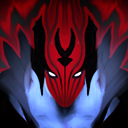 Vengeance Aura? And in that situation should they stack up straight damage or primary stat? These details can give you the edge as you progress.
Vengeance Aura? And in that situation should they stack up straight damage or primary stat? These details can give you the edge as you progress.
At this point you can start to experiment and "unlearn" the rules - or at least understand when it makes sense for them to be broken - hence ending up with  Orb of Venom
Orb of Venom  Invokers and
Invokers and  Butterfly on
Butterfly on  Tiny.
Tiny.
Skills
Guides are generally a good place to talk about the more "theoretical" stuff - builds, items, combo damages etc, as it suits the written medium. Skill stuff tends to come across better by actually playing, or watching videos.
However, we're still going to talk about them here, cos they're damned important. Skills I'm defining as stuff that's not strictly to do with tactics, selections, mental stuff basically. Skill is more about reflexes, muscle memory and execution.
Last Hitting/Denying

This is a skill, an imperfect and perishable one at that. Even if you can hit 99/100 last hits in a solo practice, how do you perform against another player of superior skill, or a hero who makes laning really difficult for you? Do you have good games and bad games? How consistent are you at your worst?
First of all, start with the basics - you need to learn how to last hit effectively and correctly. Again, start by following "the rules" - you don't auto-attack, you only attack to actually take the last hit or deny...minimising lane momentum changes. People who don't learn to do this are only ever practicing how to do it wrong. This will either permanently stunt their ability, or they'll have to work even harder to unlearn this behaviour later on.
Next up - practice, practice, practice! In as many different situations, heroes and equipment setups as possible. In some ways, learning with the worst, slowest attack animations can be helpful - as everything else seems easier after that :)
Again, learn solid basics and make sure you've fully absorbed them. It may seem daft to say, while carries obviously rely on strong last hitting, it's also a very useful skill for supports - sure, you don't do anything like as much of it, but it's critical to get those hits when you need them, and you've generally got a worse attack. Denies are also crucial at higher levels, so again this becomes important.
After you've got the hang of all this, you can start figuring out when it's ok to break "the rules" and move on to advanced plays.
Skills and Skillshots:

People tend to think of abilities like
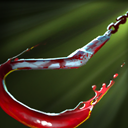 Meat Hook
Meat Hook and
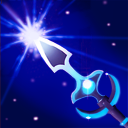 Sacred Arrow
Sacred Arrow when talking about skillshots, and they're obviously good examples.
However, I'd argue that pretty much every active ability is a skill shot to some degree. Ok something like
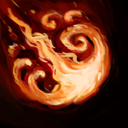 Fireblast
Fireblast hits automatically and only requires you to be in range, but the timing, positioning and chaining can still require skill.
That's slightly aside, all abilities register somewhere on the difficulty scale in terms of using them properly - even a spam R like
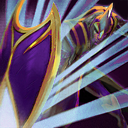 Global Silence
Global Silence still requires good timing. However, easy-target skills like this don't really require much practice and work pretty much the same from hero to hero. If you can hit a
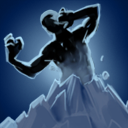 Frostbite
Frostbite you can hit a
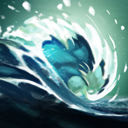 Gush
Gush too.
So skillshots are generally the skills you have to manually target, can be blocked by the terrain, units and/or require very precise timing.
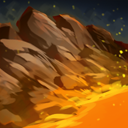 Fissure
Fissure,
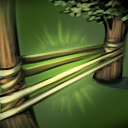 Shackleshot
Shackleshot even
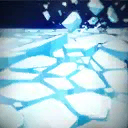 Ice Path
Ice Path are unreliable and need to be practiced and landed correctly.
Obviously team synergy does matter here - your
 Pudge
Pudge or
 Mirana
Mirana are going to have a much easier time with
 Bane
Bane around - but even then, canny enemies might swap the
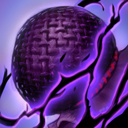 Nightmare
Nightmare between them.
Landing your skillshots consistently, without aids, requires practice and familiarity with the various heroes. Against good players, there can even be a degree of mind-games that you strive to master. This fits in with the speciality versus flexibility discussion above. Some heroes require specialisation to play properly.
Mobility and Reflexes:

Speed gets more and more important as you play certain heroes, and move up the rankings. Certain fights hinge on "who casts first", or the ability to narrowly dodge or land abilities.
You may well be able to landing a cracking 5 man
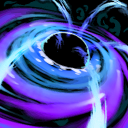 Black Hole
Black Hole at one skill level, and have done a great job, but moving up teams are much more switched on simply won't give you the same opportunities.
Improving your reflexes is difficult, and younger people have an advantage over older ones here. Practice and being prepared help more than anything else though - even simple tips like having your mouse cursor near the parts of the screen where you expect something to happen, having your fingers ready on the right buttons.
Good micromanagement and combos rely on Muscle Memory - this is the same thing that makes it easy to ride a bike, drive a car or play a musical instrument once you've learnt how. Basically the skill has passed from your conscious mind to the unconscious (you don't have to think about the individual movements), making it faster and more reliable.
The only way of doing this is practice - and again, practicing the right things. Learning to micromanage by clicking the icons and moving the mouse around is never going to be as fast as using the hotkeys effectively. Combos become instinctive the more you do them, and it helps enormously to be consistent in things like putting the same items in the same inventory slots.
Advanced Hotkeys and Habits
Good hotkey use is key to boosting your reaction speed, efficient micro-management and easy communication. You should always learn to use as many hotkeys as possible, and arrange them in such a way that it suits your personal needs.
There isn't a one-size fits all on this - many players use different setups, extra mouse buttons, completely changed layouts etc.
- Important keys should be relatively close together, having to move your hand too much can reduce accuracy and speed.
- Experiment with what's comfortable for you. Remember that changing your setup can require some re-learning and time to adapt.
- Force yourself to use them regularly if you don't already, this is the only way for it to become natural. You'll be glad you did.
Habits
Good habits are important too for developing muscle memory. Have you ever tried to drive a car where the indicator stick is on the opposite side to normal? It's bound to end up with you accidently using your windscreen wipers at least a few times before you get used to it.
In the same way, try to become standardised in the way you stack your inventory. While different heroes and setups will always require some degree of fudging, try to be as consistent as you can. E.g. I ALWAYS have my boots on slot 3,
 Town Portal Scroll
Town Portal Scroll ALWAYS goes on 6.
Learn your combos
Especially when I was learning to play, I always used to mentally run through my important combos in those moments before a fight broke out. My
 Enigma
Enigma is going to initiate on the enemy team, so here's what I need to do:
- Press C to activate
 Black King Bar
Black King Bar
- Press S to ready
 Blink Dagger
Blink Dagger
- Left Click target location to Blink there
- Press R to ready
 Black Hole
Black Hole
- Left Click tartget location to use it
- Remember not to do anything else while it channels
- Hit X for
 Refresher Orb
Refresher Orb
- Press R to ready
 Black Hole
Black Hole
- Left Click tartget location to use it again
Hotkeys
Thanks Xyrus }
Pr0 Tip:-Hold Ctrl and press the hotkey asociated with a skill (e.g. Q for Breathe Fire) to instantly out a point into that skill (you can even assign a button for Stats and use it for that as well).
I kinda feel that many players don't understand just how many useful Hotkeys there are in the game like the one above, so perhaps a section on those is needed.
Ctrl + Skill/Stats Button == put a point into that skill/stats
Alt + Click on Hero Icon == Call Missing for that Hero, e.g. "Missing Pudge"
Ctrl + Alt + Click on Hero Icon == Call "Hero Returned" for that Hero, e.g. " Pudge has returned"
Setting up the Chat Wheel for 8 different responses (which are the most useful/hilarious? 8{D )
Shift + ??? == Shift Queing actions to perform as soon as possible
Hold Ctrl, click item then ally == Pass on single item from stack, e.g.
 Observer Ward
Observer Ward or
 Tango
Tango.
Alt click on mini-map == Ping location
Hold Ctrl, hold left mouse over mini-map == Draw on Mini-Map
Alt + Click ability == Report status/cooldown of ability to team
Psychology
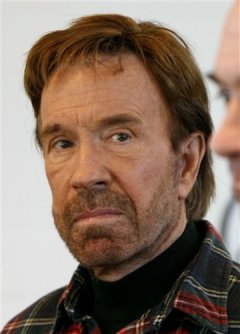 |
"A lot of times people look at the negative side of what they feel they can't do. I always look on the positive side of what I can do."
- Chuck Norris
|
Psychology huh? Seems very indepth for a game about battling wizards? Any sport or game that has a competitive element requires some degree of it. Good psychology or "mental toughness" is a very important skill for any DOTA player - RTS type games are very mathematical in basis - they require calculated decision making and sound instincts.
Becoming agitated and emotional can prevent you from making rational decisions - your anger, fear or greed temporarily overwhelm the logical part of your brain.
This causes you to lose focus, preventing your from executioning your skills properly, and making more stupid mistakes. Rage buybacks anyone?
For example, I played a pub game recently as
 Bane
Bane, and ended up solo offlane against a
 Faceless Void
Faceless Void and his support. I knew I couldn't kill him early on, so just focused on making his laning miserable with constant
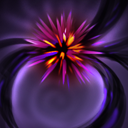 Enfeeble
Enfeebles, before getting a
 Soul Ring
Soul Ring and killing him. As it turns out, the rest of my team did pretty well too, and we ended up rolling into their base relatively early.
As we were killing their barracks, I saw
 Faceless Void
Faceless Void approaching, and quickly split from the team so I could lock him down when he used
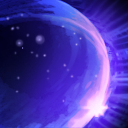 Chronosphere
Chronosphere. The guy was so mad with me from the laning phase that he got 3 of my team mates, but actually ran out of the dome after me for revenge!
Ok, so reacting emotionally is bad? Well not entirely, you want to enjoy the game so getting a bit excited and channelling your emotions into your determination to play better is useful. The difference is finding a balance and using them in the right way.
 |
"Fire in your belly, but ice in your mind."

|
While I don't think we can give
 Jakiro
Jakiro credit for the quote, he's a good way of remembering it. Keep that fire in your belly - that desire to win, to do better, to never give up. Enjoy the moment, get your team positive and pumped up. But also keep that ice in your mind - cold, calculating and methodical. Do the maths, make the sacrifice plays and focus the most important targets.
Ok, so you accept my premise...but understanding it and doing it in stressful are two different things. What can you try that might help?
- Stay calm. Losing your temper will achieve nothing. Take a deep breath, release it slowly. If you've just died, you can move away from the computer for a moment and gather yourself. This goes double if you've naturally got a short fuse or are hot-headed. Wait 10 seconds before typing anything.
- Look forwards, not backwards. Your team might be in a bad situation because X,Y or Z happened...but the game isn't over yet. You don't get a prize for being the first one to say "GG", and you certainly won't help the situation by raking over what's gone wrong. You can't change what's happened, but you can change what happens next.
 Nobody likes Captain Hindsight, he never really helps...
Nobody likes Captain Hindsight, he never really helps...
- Be constructive. Which statement is more helpful?
"The next time we do 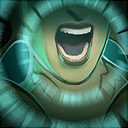 Song of the Siren into
Song of the Siren into 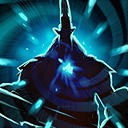 Reverse Polarity, we need a signal to get the timing right"
Reverse Polarity, we need a signal to get the timing right" rather than
"THAT F*&$&$* IDIOT  Magnus messed up an easy RP! OMG you suck so hard"
Magnus messed up an easy RP! OMG you suck so hard". Don't talk about what went wrong or lay blame, make suggestions about how to do it better next time.
- Think about what went wrong, and then put it aside. You do need a moment to reflect on what went wrong in a situation - keep it brief and technical. "Missed that
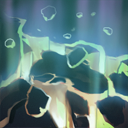 Split Earth
Split Earth, need to aim a bit further ahead next time". Then forget about it, you don't help yourself by dwelling on what went wrong.
- Practice. You only get better at something by doing it right. The mental side is probably the hardest thing to develop, but it carries through to the rest of your life in various ways. You won't always get it right, sometimes you will get mad. Accept it, set it aside, and try to keep improving.
Preparation
 |
"The fight is won or lost far away from witnesses - behind the lines, in the gym, and out there on the road, long before I dance under those lights."
- Muhammad Ali
|
Ole Cassius pretty much sums this up for us already - preparation is key to success. So how do you prepare for a game of DOTA? It's not like you need to stretch like you would for a physical sport, but a good warm up can really help.
If you're due to play a competitive game, or fancy doing some ranked, have a quick warmup pub or even bot game to ease you in - especially if you haven't played for a while. DOTA has a lot of "perishable" skills - i.e. they degrade over time if not used - and you'll often find it takes a little time to get fully up to speed after a break.
Obviously try to practice the role/hero you'll be undertaking if at all possible.
The other side of preparation is mental. Make sure that you're relaxed and in a good headspace to play - if you're tired or irritable that can easily spill over into your play. If not, then you might not want to play at all, or will need to find a way of relaxing before beginning.
The Quiz
For a bit of fun, here are some questions to test out your DOTA knowledge - try to answer quickly, and without having to look anything up - no cheating! And yes of course you can post up how many you got right in the comments below :)
1) You're playing as a mid  Razor, which cheap survivability item is usually the most appropriate?
Razor, which cheap survivability item is usually the most appropriate?
a- Mekansm
b- Vanguard
c- Sange
d- Force Staff

Spoiler: Click to view
A
The
 Vanguard
Vanguard offers poor damage block for ranged heroes, while the
 Mekansm
Mekansm offers considerable extra stats and utility for the team.
 Sange
Sange is not terribly appropriate for an agility hero, and the
 Force Staff
Force Staff unnecessary for a fast hero like
 Razor
Razor.
2) You're playing
 Dragon Knight
Dragon Knight late game and struggling against the enemy
 Sven
Sven, with your limited cash which defensive item do you need the most?
a- Platemail
b- Ghost Scepter
c- Vladmir's Offering
d- Talisman of Evasion

Spoiler: Click to view
D
You already have substantial armour, so the
 Platemail
Platemail will offer diminishing returns. The
 Ghost Scepter
Ghost Scepter means you can't attack while it's active, making it inappropriate for you.
 Vladmir's Offering
Vladmir's Offering's lifesteal only works when you're in melee form, when you want to be in dragon form for fights.
As long as he doesn't have a
 Monkey King Bar
Monkey King Bar, The Talisman offers by far the best EHP (Effective Hit Points) for you, and could be built into a
 Heaven's Halberd
Heaven's Halberd.
3) You're playing Carry
 Earthshaker
Earthshaker, which item will give you the most damage with your
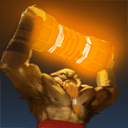 Enchant Totem
Enchant Totem attacks?
a- Mjollnir
b- Heart of Tarrasque
c- Monkey King Bar
d- Why the hell are you playing Carry Earthshaker?

Spoiler: Click to view
B or D
 Enchant Totem
Enchant Totem only stacks with your Base/Primary Stat damage, so with the +400% modifier, the
 Heart of Tarrasque
Heart of Tarrasque actually offers you the most damage with it's +40 strength. I'm also accepting D, because :).
4) You're laning as a support for
 Faceless Void
Faceless Void against
 Windranger
Windranger, which is the most appropriate pick?
a- Sand King
b- Keeper of the Light
c- Necrophos
d- Lich

Spoiler: Click to view
D
While all these lanes can potentially work, played right,
 Sand King
Sand King cannot effectively harass a ranged hero, and the lane isn't really strong enough to get a kill.
 Keeper of the Light
Keeper of the Light and
 Necrophos
Necrophos can both do ok, but don't particularly want to trade hits or offer good synergy with Void.
 Lich
Lich is the most appropriate due to his strong harassment/denying skills.
5) You've got your
 Black King Bar
Black King Bar on
 Enigma
Enigma, which hero do you need to make sure you get in the
 Black Hole
Black Hole?
a- Vengeful Spirit
b- Lion
c- Abaddon
d- Tiny

Spoiler: Click to view
A
While the other heroes may be important to try to get in, as they present a significant threat to your team, you need to get the
 Vengeful Spirit
Vengeful Spirit as her
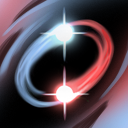 Nether Swap
Nether Swap can interrupt your channelling through your BKB, in which case it won't matter which other heroes you managed to catch.
6) You're playing as
 Bounty Hunter
Bounty Hunter against a team with an
 Anti-Mage
Anti-Mage, which would be the most appropriate first big item?
a- Battle Fury
b- Black King Bar
c- Orchid Malevolence
d- Butterfly

Spoiler: Click to view
C
It's very important that you can prevent
 Anti-Mage
Anti-Mage using
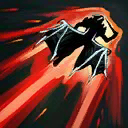 Blink
Blink, and the
 Orchid Malevolence
Orchid Malevolence will give you a long silence with bonus damage added on.
7) You're playing offlane
 Weaver
Weaver against a dual lane, which of these carries most makes you want to change lanes?
a- Spectre
b- Luna
c- Drow Ranger
d- Wraith King

Spoiler: Click to view
C
While the other heroes can present you with problems if their lane partner is a good counter to you,
 Drow Ranger
Drow Ranger is the most threatening due to her
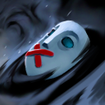 Gust
Gust and
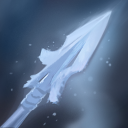 Frost Arrows
Frost Arrows preventing you from using
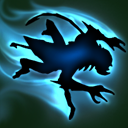 Shukuchi
Shukuchi.
8) You're playing against a mid
 Pudge
Pudge, which of these heroes is the LEAST appropriate to pick?
a- Puck
b- Clockwerk
c- Queen of Pain
d- Shadow Fiend

Spoiler: Click to view
D
While a good
 Shadow Fiend
Shadow Fiend can potentially dominate a lane against
 Pudge
Pudge, he's pretty squishy and has no slow, stun or mobility spells that will allow him to escape a successful
 Meat Hook
Meat Hook or even
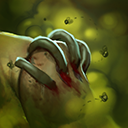 Rot
Rot.
9) Which ultimate works best with
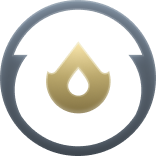 Weave
Weave from the following list?
a- Epicenter
b- Death Ward
c- Macropyre
d- Chain Frost

Spoiler: Click to view
B
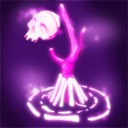 Death Ward
Death Ward inflicts
Physical damage, while all of the other inflict Magical damage. The armour reduction from
 Weave
Weave will increase the amount of physical damage inflicted, but have no effect on magic damage.
10) Assuming maximum levels, which of these restores the most health points?
a- 1 Urn of Shadows Charge
b- Living Armour
c- Purification
d- Shadow Word

Spoiler: Click to view
D
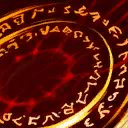 Shadow Word
Shadow Word heals a total of 495 damage, compared to A400, B195 and C360. Although
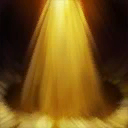 Purification
Purification does have the advantage of both inflicting damage, and healing instantly.
The Answers

Spoiler: Click to view
1. A
2. D
3. B or D
4. D
5. A
6. C
7. C
8. D
9. B
10. D


















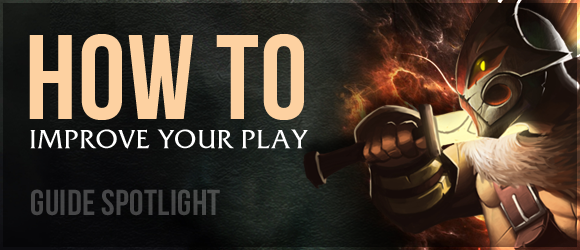















 Spoiler: Click to view
Spoiler: Click to view
Quick Comment (40) View Comments
You need to log in before commenting.